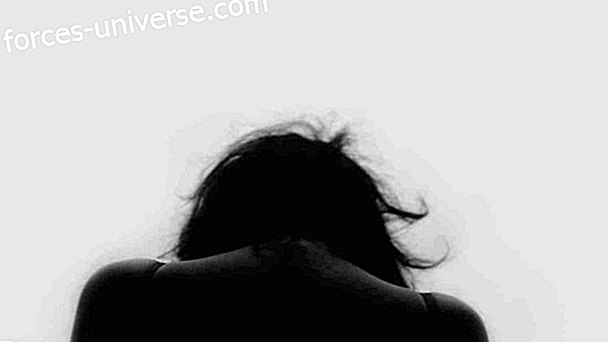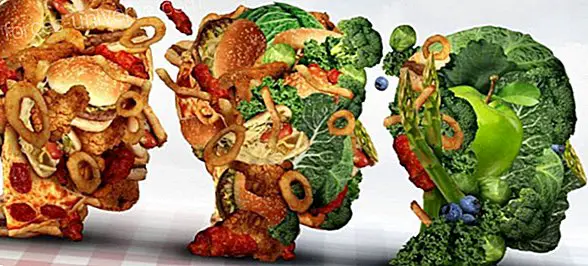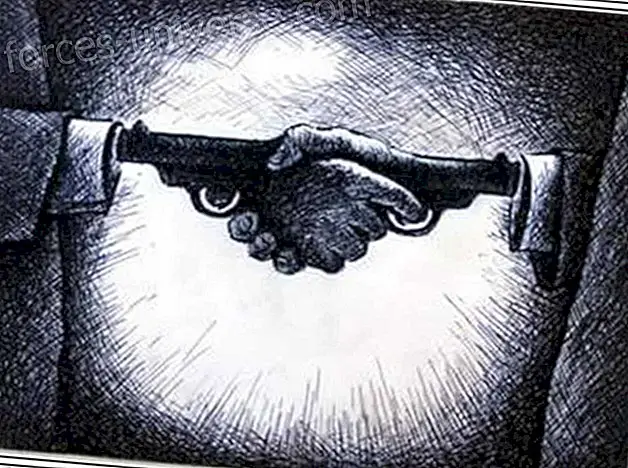
THE EGO: (From lat. Ego, soul, me) It is a generic name of a Star Imprint, which "descended" to the manifestation at the time of individualization and lodged in the reactive mind like an untamed foal to ride In our Inner Being, in that way, he began to recreate himself with the benevolence of our daily actions and reactions. The Ego is invisible in our life and behaves as a duality, "the Heart and the Soul in our inner being", two different entities that accompany the personality with the definite purpose of integrating into the supraphysical entity called spirit, which accompanies to the soul and personality, that is when the ego has been integrated.
The Egoíco Factor directed by the mint and the Soul, and constitute an idea, a human illusion. For Esoterism it is the Soul, the divine spark that encourages man and that reincarnates in another human being after death. For the Freudian school it has an academic definition: The Ego is "the conscious aspect of the psyche that decides between the basic instincts of the id and the morality of the super self." It is the psychic instance that is recognized as me, partially conscious, that controls the motility and means between the instincts of the id, the ideals of the Super I and the reality of the outside world. For other schools it has other meanings: "Mara", according to Buddhists; "Amalek, " according to Jewish Kabbalists; the "Guardian, " according to the alchemists; the "Supai", according to the Inkas; the "Parasite, " according to the Toltecs, and other metaphysical therapists call it "negative ego" or "positive ego." It is also defined as the concrete lower mind, the lower self, which constitutes the reactive mental activity controlled by the lower aspect of the personality.
The personalized Ego
Each of us has his own ego composed of multiple I or Psychological Defects, which can be defined as follows: The Soul, Spirit or Being is born in a dense physical body, where the Ego penetrates the form as a separate entity. A duality that behaves like a "cod" that must be carried. It is created as an intelligent principle, as an entity separate from the Mental Body and endowed with imperfection so that through learning you can evolve your consciousness, thoughts and feelings in the fleshly way, but darkness created the conditions for you to deviate from your true purpose expressing itself through selfishness. The Ego is the one that channels the engrams to the reactive mind, it is the one that “catches off”, it is not the personality, but the truth is that the Ego is not to blame for human errors, because it does not make conscious decisions to create karmas and shatter material dreams.
It is not easy to live depersonalized without the ego intervening, each human being has his own ego that drags the personality unconsciously. He manages his actions, but it is the personality that creates the conditions for the reactive mental principle, as a result of the Selfish Factor, the instrument that fulfills the necessary roles in the Essence of Evolution. Some are instruments that come in mission and in the physical plane decides where to incarnate ?. Others choose what ailments to have, what experiences to live, and what sufferings to suffer during their pilgrimage through the life cycle, thus, they can rise spiritually and integrate into their Soul, Spirit or Being to evolve.
The traps of the Ego
There is an excess of self-esteem in people, it is a very fine line between self-love. Some personalities react impulsively, others are particularly susceptible to prominence. The traps of Ego are concealed in the circles that surround people, their intervention in physical life is too obvious. No person is exempt from manipulation, since it only emanates discord and preaches falsehood, which advances to a certain level until the person follows it and even polarizes it. The Ego has no place to reflect and is good for depression because it increases, intensifies, chronic and makes false realities, always has a manipulative function and strives to open scars so that wounds arise, that's why they should avoid the traps of the Ego or the person will be humiliated by the Law of Cause and Effect. The paradox is that the Ego is a necessity of prominence and the Soul is an impediment to it. It is he who makes "sudden jumps" and delays the evolutionary path. During the pilgrimage through the "life cycles" the Ego must be integrated into the Soul, Spirit or Being so that it can evolve. He becomes aware that he is part of the Divine Spirit and turns to his source to help him overcome his weaknesses.
The Ego and its mechanisms
Supraphysical beings called spirit, incarnate in human beings to fulfill activities in physical life called roles. Most beings have certain doses of manipulative Ego, some 90%, others 5%, but they do, no incarnate being is exempt from manipulation.
The Ego will always be stalking, even if it is bringing the nose to the surface a little "out" of reactive mind, even when the analytical mind is functioning fully. One of those manipulative qualities, is the illusion of belonging, the desire to star, that is the idea of oneself, the role that must play in each of the lives when interpreting the provisional role, and when exercising the manipulative role, blinds and makes the person what he does not appear to be.
No one has seen an Ego, but it is conceptualized that it is an abstract thought composed of multiple roles and in each one they play their part. That way the actor appears to learn his part, makes his debut and prepares for the full expression of his performance. The roles of Ego are like actors who are imprisoned by the illusion of the senses and endowed with mentality. He is an actor who first hinders and imprisons to finally unleash and free himself from the accumulated throughout the cycles, as a result of personal experience, both past and present.
The Ego is a duality within us, as another authentic person who thinks, feels and acts, that is, they have their own goals, and is able to create the right conditions for their goal to be fulfilled, which he achieves with patience and will, because without that quality, the Ego behaves like a child malcriado . The Ego is disinterested and has a false sense of identity, it generally needs the approval of others, of the opinion of the other, but when it is in the mode of instinct and survival, Then look for comfort and safety.
The roles of Ego
There are certain ways or roles to star, but not all have positive effects on the human group. Each creates their own moods and according to temperament, they can be classified into four psychological states: Melancholic, choleric, lymphatic and blood, four types are related to the four elements of nature. Three other psychological states are also known effects: Nervous, bilious and flamboyant, and in each of the psychological states the role-personality acts, not the Ego, because in Theory, the custom role exceeds the performance of the Ego. Hence, sometimes the egoistic role feels unhappy and disappointed. There are also automatisms, which are mechanisms of limitation, engrams, personality, deductive intelligence, etc. ? -some of which are activated with roles ?. Following are the most prominent Ego roles:
The manipulative role:
From lat. manip? lus, bundle, military unit, and in b. The t. The sacred ornament
In the ego that uses good means to use other people and, sometimes, artisans, in politics, in the market, in information, etc., with distortion of truth or justice. It is an ego that is not in the service of particular interests, but it does intervene to manage the business of another in its own way, or blend with others. The ego manages the mentality of other people. The vices of the manipulative Ego are seven and are directly linked to the person they try to control and those around them:
1. Punish 2. Complain 3. Blame 4. Threaten 5. Pursue 6. Criticize 7. Bribe
The victim's role:
Sometimes the ego has dominion over the Impulsive and Depressive Reactive Factor manipulating that state, assumes the role of victim of the circumstances, but fails to realize the negative effect on the family environment. The mind only allows it to see the failures and they enclose themselves in their role.
Some roles feel comfortable in their role and instead of confronting them to be better, they are locked in a limbo ego co. They are unconscious roles that make the person feel safe, but maybe he doesn't do it to others, but he does it with himself. They are good for that, they love to enjoy the sorrow and pain as saying: Ay my leg, and my back, and my acheses . They also have other vices of roles such as: I am not well at all, luck is not in my favor, today I am not in the mood for jokes, etc., etc.
The inquisitor role, ra. (Of the lat. Inquisitor, -? Ris) Person who inquires, knows the causes and does the investigation of something to verify the reality and the circumstances. It is a group good, but when the person is involved in obfuscation and selfish doubts, then it allows the entry of negative forces, but in any case the role of the inquisitor helps the personality, it is good to serve and acquire knowledge.
The role of Cínico, ca. (From lat. Cynismus, and this from gr. ????????). A role that is demonstrated with a "fake smile". He is shameless in lying and in the defense and practice of vituperable actions or doctrines. The cynical role always has at its disposal the impudence, the blatant obscenity and the affectation of the gaps and rudeness.
The Cretin role, na. (From fr. Crétin). It is a role that makes the personality have a behavior characterized by a peculiar delay of intelligence, usually accompanied by some other defect of organic development. Ex: Stupidity, idiocy, foolishness, lack of talent, etc. Generally the fool's role becomes part of the expression of the Cretinian Ego.
The role of critic. Criticism shows more false realities than any other role, and no person is exempt from it. It is a role that often has a tendency to criticize and speak and also an excessive pleasure in criticizing intimate contacts, other personalities and their tasks. An egoic being that criticizes does not love, must learn to love. When you don't think about criticism, then the role loves and automatically becomes part of the expression of daily life. When you stop criticizing others, then it is a harmless role and life opens up with new rhythms of service and utility. Words and perspective should be simple, without the tendency to criticize and judge.
Suspicious role: (From lat. Susp? Cax, -? Cis). - Prone to conceive suspicions or distrust. This is the most poisonous and generally the most false role, and although it is well founded, it is capable of poisoning the very roots of being. The suspicious person always lies, but lies with such apparent truth that it seems correct and reasonable. The suspicious role is great to judge, is an expert in defining, labeling and classifying according to your perception. It is also great for subjectivity, for bias, always lies, but lies with such apparent truthfulness, which seems correct and reasonable. It distorts the attitudes of life and puts the creative imagination to confuse as a powerful servant.
The envious role, sa. (From Lat. Invid? A). Sadness or regret of someone else's good, emulation, or desire for something that is not possessed. For Catholic doctrine, envy is one of the seven deadly sins. Unamuno says in his writings: "A thousand times more terrible than hunger, because it is spiritual hunger." Among the Romans the word envy meant feelings such as 'dislike', 'hate', 'ill will', 'unpopularity', 'jealousy', 'rivalry'. For example, invidia Numantini foederis meant 'unpopularity of the Numancia treaty'.
The Role of Rebellion: (From lat. Rebellis). Rebellion is an action of the rebel ego that prevents the ascent. Also said of the person who for not appearing in a trial, after calling and has breached the order or intimidation of the judge, is declared by him in default. Also rebellious when he does not go in a procedural state to the call that a judge formally makes or leaves the notifications of this judge.
The Role of Forgiveness ... Will forgiveness be a different role from Ego ...?
The act of forgiving, that is, of remitting a debt, an offense, a fault, a crime or something else to a being harmed for not being forgiven. The majority of the human collective ignores that forgiving is not born from the heart, the joy of forgiving is born of the Ego. The logic of the personality would be to say: "My Ego apologizes for the evils that I have caused." When a debt is forgiven, offense, fault, etc., the Ego does, it is the one who forgives, because by forgiving he lets go of the evil effects of energy that affects the life of his role-personality.
Forgiveness is a gift from God and the Ego has been put in its custody so that it freely fulfills the function of forgiving, the role-personality is not what forgives. No human being has the power to offend another and then forgive him, unless Ego himself has granted him that power, - Another thing is for a penalty deserved for an offense or some debt or karmic obligation, which would result in the law of Karma–. Forgiveness should not fall on the person who has allegedly been offended, but on the same role-personality that offends. Hence, when the role-personality forgives an offense, the only thing he is doing is disengaging himself from his responsibility.
The roles of Capricho and Angry and Antagonism:
The three terms are root of Ego. The human collective confuse the three and are different concepts.
Caprice:
It is part of the ego, which the role-personality encloses in itself and does not allow anything to change. You can say: "Don't touch me that, leave it as it is." He does not allow another to modify what he has done, which can be a whim, which can even be childish.
The anger:
It is also part of the Ego: There are different types of anger. There is anger in sight and there is subtle anger. When the person who is angry does not allow another to modify their original concept, nobody modifies the content of their idea. He is angry and can say to the other: "Leave my idea as it is."
The antagonism: The majority of the human collective confuses both terms, antagonism and anger.
The antagonism has nothing to do with anger, but when it raises another person, it is also the role of Ego. It is antagonism when the role-personality turns to another negatively, that is, facing it. The role-personality is not isolated as in the case of anger, but both terms are confused. You cannot take the antagonism as anger, the discharge of anger is antagonism, not anger.
The Role of Indirect Ego:
This is a role originated by Jorge Orguin, it is an ego role that makes the person overcome the circumference of 360 °. It is always said that the egocentric does not see beyond himself and for that ego, everything revolves around him. In the indirect ego role, the person even loses his vision of himself ... and lets himself be.
More ego roles:
The Ego is that it drives to want to be "the best", "the richest", "the most powerful", "the smartest", "the most pleasant", "the most beautiful physically", "the most popular". Etc. That feeling silly is a problem of a selfish nature, if the person feels a certain way, it is his ego that makes him feel that way.
The ego does not let see beyond ... !!! ... It is a pity the person, when his ego is the one that dominates ... !!!
There are other roles, some can be defined as: "Burned Light Bulb" role, "pass under the table" role, "be behind the scenes" role, "moyejúo" role, "color paint" role, "radio" role off ”, the“ drag mass ”role, “ babieca ”role, etc., and other things like that, is the way to star.
The Ego is a God who walks on the Planet veiled by the carnal form, with the nature of desire and the fluidic mind. It is a Presence that always tries to attract and bring together the soul and personality and raise both to the highest possible manifestation in each life cycle. The conscious Ego that is part of the Divine Spirit and turns to its source to help you overcome your weaknesses.
During the pilgrimage through the “cycles of life” it must be integrated so that through learning it can evolve, that later when it is incarnated forget what it came to do and not do it, it is another concept. There are also spiritual entities do not want to be rescued, either because it is not yet time or because they interpret that this is not the way and choose another, or because the ego also blind, it would be foolish for human beings to insist.
It transcends evolution when the personality ceases to have Ego and gives it a "kick in the back" so that it does not accompany the incarnate spirit. After all, the Ego does not care, he leaves with the Soul when the person dies and returns with it when he returns to incarnate.
Written by Willy Chaparro






